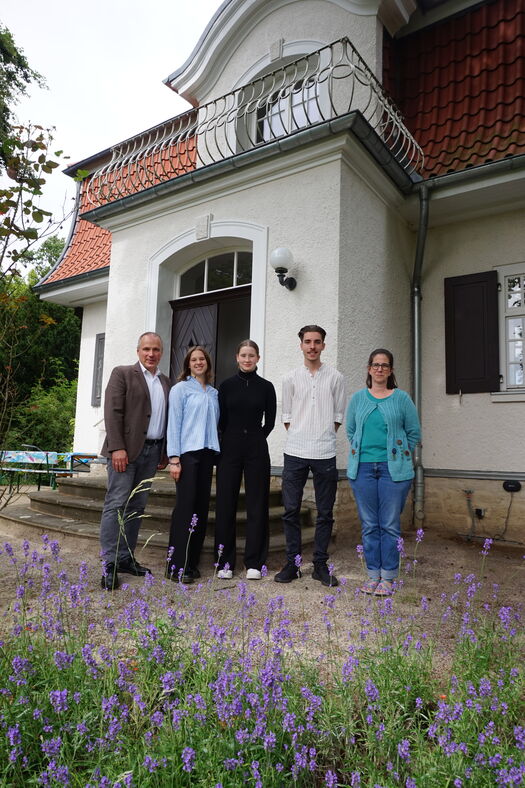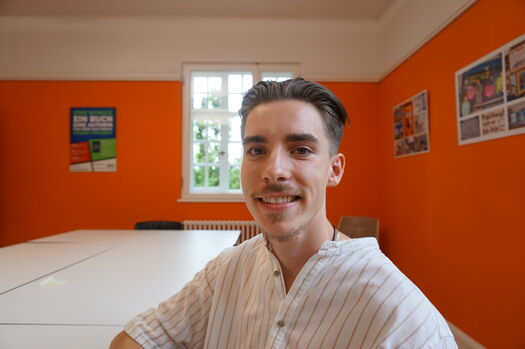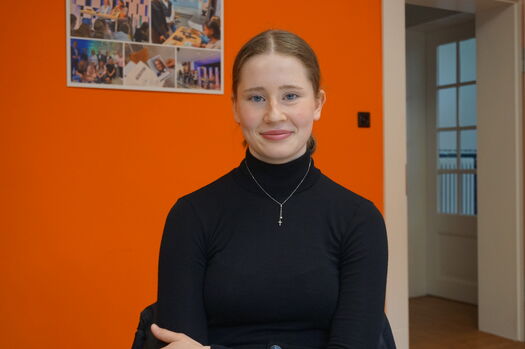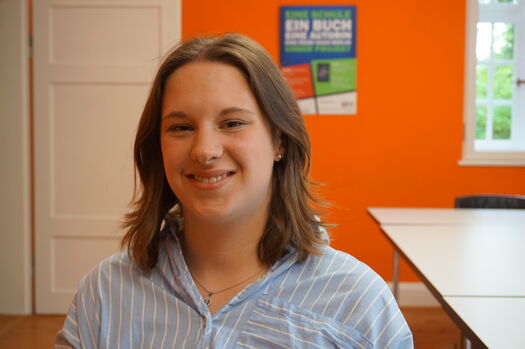Courageously follow your gut feeling




Osnabrück, July 10, 2023
The Abitur is done... And now? Three young people from the Osnabrück region have already made up their minds: they are going to spend a year doing voluntary service abroad. Sponsored by the Friedel & Gisela Bohnenkamp Foundation, they are setting off into the wide world full of new experiences and encounters. But what is it that has brought the three to this courageous step? What drives them? And where will they go?
"It was just a gut feeling." Miriam Scholz from Bad Laer was certain that she wanted to do voluntary service abroad after graduating from high school. In August, the 19-year-old will begin her assignment in Norway. "I will live and work in a residential facility for people with and without disabilities," says Scholz. She had become interested in this path early on. "I already said in fifth grade, 'I have to go abroad!'" Scholz recounts with a smile. Now it's time to make it happen. Many possible locations came into question for her: South Africa, Greece? In the end it became Norway, but it wasn't just the country that was decisive for her. "It was the project that convinced me," says Scholz, who found out about the possible destinations on the websites of the sending organizations and thus came to her decision. "I want to become an air traffic controller later. Before that, however, I wanted to devote all my attention to people with disabilities, to live directly with them, to understand their view of life. Because I believe that's where I can grow as a person."
David Strunk has also chosen a destination that will likely cause him to grow from his newfound experiences. For his volunteer service, the Osnabrück native is traveling to the Amazon region of Ecuador. In a village in the province of Napo, he will teach English in a school run by the indigenous population and live with a host family there for a year. A step that requires some courage to take at this age - Strunk has it, but chance also had a hand in finding the final destination. Initially, Strunk had been interested in a project in a larger city and with some other volunteers, but then things turned out differently: He wanted to venture deeper into the country to get closer to the indigenous population, for whom he is particularly interested. Together with another volunteer he was supposed to go to Napo. So far, however, no one has been found who, like him, is willing to take on this challenge. Nevertheless, Strunk stuck to his new plan. "At first I thought it would be too hard. Alone, two hours to the next town. But then I had contact with a former volunteer. She reassured me, no, she even motivated me to take this step," he says. Strunk had started planning his trip early. So he also found the time to get his concerns out of the way and take care of his visa as well. "It was a lot of paperwork, translations had to be done for my certificates, papers had to be notarized. My sending organization supported me with checklists. That was very helpful. It's important to take care of everything early!" Especially when leaving for a visa-required country, Strunk now knows firsthand. And yet, with a few weeks to go, he's now sure he made the right decision. "The main thing was that it was really different at the mission site than it is here," Strunk says. An indigenous village in the Ecuadorian Amazon forest, that seems to fit at first glance.
The destination will be somewhat more familiar for Pia Splete - after graduating from Waldorf School, she is drawn to Hundested, Denmark, an hour north of Copenhagen, to work for the German Red Cross (DRK). "I have relatives in Denmark and already know it from many vacations, but through my volunteer service I will get to know the country from a new perspective," Splete is sure. Splete will be volunteering at an "Efterskolen," a boarding school for young people that offers an orientation year before high school graduation after completing the tenth grade. She will support the teachers there and hopes to implement a theater project for the young people. But above all, she wants to learn the language even better: "I want to study medicine in Denmark, that's my big dream. And perfect Danish is essential for that," Splete knows. She has already met other volunteers from all over Germany at a one-week preparatory seminar organized by the German Red Cross, where she was given the tools of the trade and the final information before she sets off. "That was very exciting, we are a community of very nice people. Now we can get started!"
For Pia, Miriam and David, the voluntary service is a departure into the unknown. And yet, that is probably what makes volunteering abroad so appealing to them: facing the challenges of the world and then growing from their own experiences. To courageously take the step into the unknown and to follow your gut feeling.
The Friedel & Gisela Bohnenkamp Foundation supports young people like Pia Splete, Miriam Scholz and David Strunk in their voluntary service. The foundation provides up to 1500 € to support the share of the costs of the stay abroad raised by the participants themselves. In cooperation with sending organizations, young people can identify a task and a goal, plan their assignment and set off for their assignment location with financial help from the federal government and private funds.
Interested young people can contact the Friedel & Gisela Bohnenkamp Foundation (Klaus-Strick-Weg 28, 49082 Osnabrück; gewicke(at)bohnenkamp-stiftung.de) with an application that includes a resume and a letter of motivation. Funding is limited to voluntary services by adults from the Osnabrück region. The responsible contact person is Uta Gewicke, officer of the Friedel & Gisela Bohnenkamp Foundation.